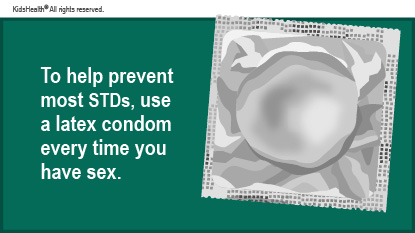Pelvic Inflammatory Disease: Taking Care of Yourself
Pelvic inflammatory disease (PID) is an infection in the ovaries, fallopian tubes, and/or uterus. PID is caused by a sexually transmitted disease (STD). STDs are infections that spread through sex (vaginal, oral, or anal). Treatment with antibiotics can help prevent long-lasting problems and stop the infection from spreading to other people.


Treatment:
-
Take all the antibiotics exactly as the health care provider recommended. Don't stop the antibiotics early, even if the signs of PID are gone, or it could come back.
-
Tell all sexual partners from the past 2 months to get treatment too, even if they don't have signs of an STD. If your health care provider gave you a prescription for your partner(s), be sure you give it to them.
-
Don't have sex until treatment is done and there are no signs of PID or other STDs in you and your partner. This is usually at least 1 week after treatment starts. Signs of an STD include belly pain, fever, abnormal discharge, pain when peeing, or genital warts or sores.
-
If you have pain, cramps, or fever, you can:
-
Take ibuprofen (such as Advil®, Motrin®, or a store brand) OR acetaminophen (such as Tylenol® or a store brand). Follow dose instructions on the label.
-
Try a warm heating pad on your belly.
Follow up:
-
Go for follow-up STD testing as recommended by the health care provider.
-
Get all doses of the human papillomavirus (HPV) vaccine (shot). HPV is an STD that can lead to some kinds of cancer and genital warts.

-
You can't get or take the antibiotics.
-
You have a new or higher fever.
-
You're not getting better after a few days on antibiotics.
-
You get better, then develop signs of an STD.

-
You get sudden, severe pain in the belly.
-
You have heavy vaginal bleeding.
-
You are vomiting (throwing up) and can't keep anything down.

What happens if PID is not treated? If PID isn't treated, a girl can have problems like:
Sometimes, if PID has gone on too long, a girl may still get these problems even after treatment.
Can I get PID again? Yes. Girls can get PID again if partners with STDs don't get treatment, or if a girl has sex with someone else who has an STD.
How can I avoid getting another STD? The best way to avoid STDs is not to have sex (vaginal, oral, or anal). If you do have sex, you should:
-
Use a condom every time you have sex (vaginal, oral, or anal).
-
Have only one partner, who has already been tested and does not have an STD. That partner should not have sex with other people.